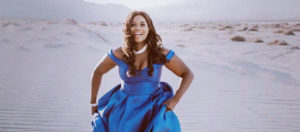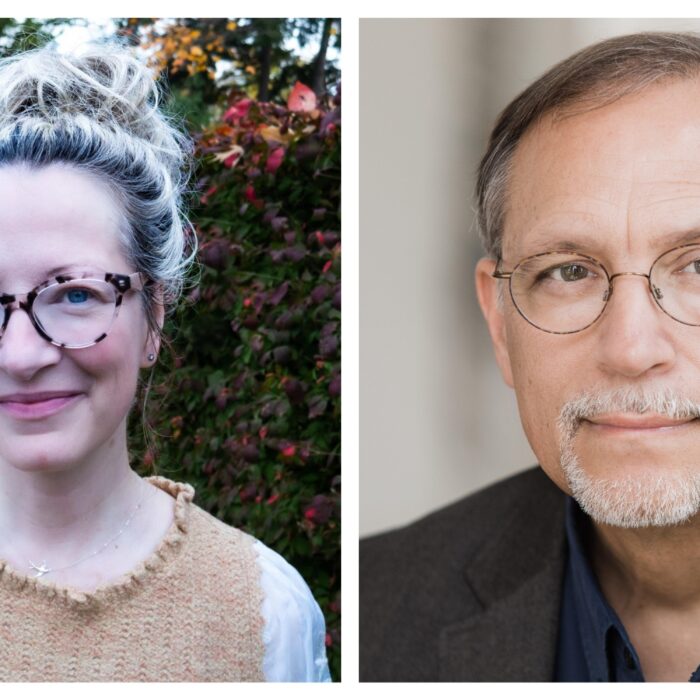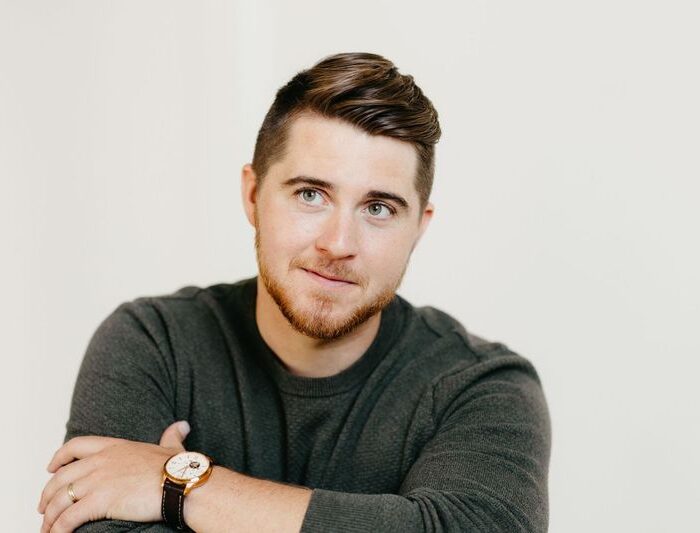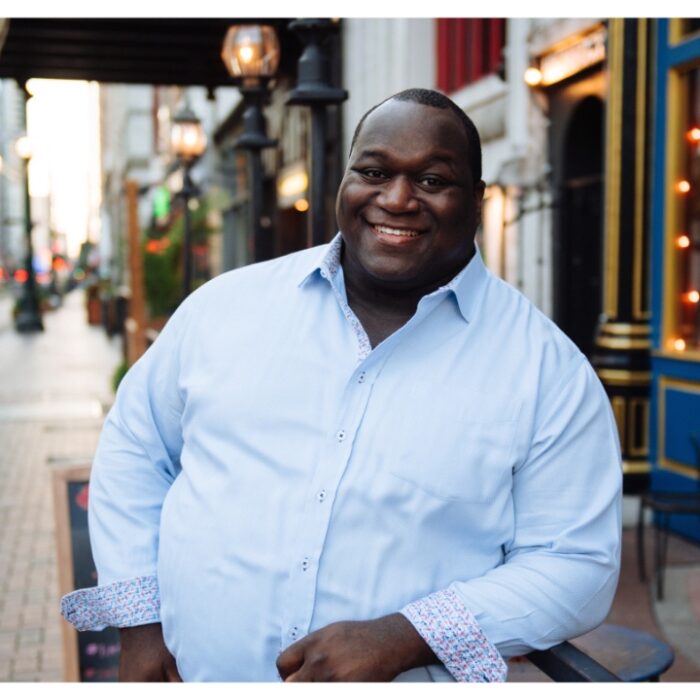
Q & A: Soprano Angel Blue on the Balancing Her Personal & Professional Life
By Ona JarmalavičiūtėSoprano Angel Blue has become an operatic sensation. She recently had a stellar turn as Bess in the Metropolitan Opera’s 2019-20 season opener of “Porgy and Bess”. This year the recording won a Grammy for Best Opera Recording, with Angel Blue giving the acceptance speech onscreen.
A natural on camera, she has also launched and hosted an online chat show throughout quarantine called “Faithful Fridays”, where her enthusiastic, warm character and spiritual perspective of life take the floor. In this interview the everyday Angel–with a gospel upbringing and close connections to her familial roots–and Angel Blue–a prima donna hitting the lineup for the Metropolitan Opera stage and wowing the audience with her breathtaking plush-velvet soprano and rich-hued middle register–meet as one.
The first inspires the latter and the singer shares her experiences of being herself and being vulnerable onstage, and what the quintessentially American operatic masterpiece “Porgy and Bess”–a story of the joys and struggles of a black neighborhood in Charleston, South Carolina, in the early 20th Century–means for her.
OperaWire: Has the pandemic changed how you understand and value your career?
Angel Blue: It changed my understanding of where I sing. As opera singers, we often see ourselves onstage giving traditional recitals. But it is also true that we can perform anywhere and I feel that we forgot this sometimes. I am working in half-capacity theatres and holding more virtual events. And during this time I can explore new repertoire and sing songs I’ve never heard before.
I am worried about the future. People are so down. I feel for everyone in the arts as this year has presented a very unfortunate situation, especially in the Metropolitan Opera. Even though I miss the opera building, other singers, and orchestra members, it has been a special time as well, a time filled with family and creativity.
OW: You have launched an incredible quarantine initiative called “Faithful Fridays.” How was it born?
AB: My minor in college, for the last two years before I got my bachelor’s degree, was journalism. The speech and communications courses were just wonderful. I really enjoyed interviewing people, hearing their experiences, their life stories. I was always comfortable with cameras. I worked for the BBC from 2014 to 2017. When the quarantine started, I decided to invite people in and to ask how they are doing at this time. What were their hopes, how did they see the future, etc. I saw that we all feel the same way during this time. Also, I remembered my father used to sing on a Christian TV program. Even though he had passed away he was, and still is, very present in my life. So it’s in me. It takes a lot of effort to record and put the videos together, but it’s worth it.
OW: What is the meaning of networking for the artist today?
AB: It is very important for every artist to be seen and heard. To be social, communicate and stay connected. Even when you are introverted, it’s important to be extroverted in that way. Earlier it was easier to meet people and spend time together, and so this time has been interesting for networking.
OW: How could you describe your experience performing in “Porgy in Bess”?
AB: Singing in “Porgy and Bess” is such an honor. Some people like it, some people don’t. Some feel that it is a bad representation of culture. For me, it is a truly great American opera. I enjoy the music a lot and I wanted to sing and act it well. There are a lot of recordings which I have listened to. But for me, it was important to be authentic and not to imitate anyone. I am not like any Bess before: even physically I differ! Being 180 centimeters tall I am the tallest Bess! I was determined to do the role my way.
OW: How do you deal with the pressure that comes from the famous previous interpretations of “Porgy and Bess”?
AB: I love how everyone brings their own experience into these melodies, making them opera or jazz songs or instrumental melodies. I enjoy the versions of Ella Fitzgerald, Miles Davis, and Nina Simone. But my interpretation has nothing to do with them. I take inspiration for the performance from the history of my own family. My parents were not slaves, but my father did pick cotton. I had many conversations with them about slavery and I am aware of how lucky I am to be born in other times. So my experience with “Porgy and Bess” was a conversation with my grandmother. It is a story about the strength of slavery survivors. I grew up in a desert where people paved roads and built signs. I see it as an honor to showcase people who didn’t have a voice. At every performance, I am paying homage to my family.
OW: It seems that performing requires a lot of personal vulnerability from the performer.
AB: I don’t struggle with vulnerability, because I see it as a strength. The most inspiring singer for me is Leontyne Price: she shared the deepest parts of her spirit, being vulnerable with her feelings on stage. For me, vulnerability also comes very easily. When I was a child I was maybe even too open, very outspoken. I always loved being onstage, performing for other people. The problem is not to be open on stage, but to control my openness offstage. I am an intense person when I am Angel Blue. I need to learn how to just be Angel when I’m away from the theatre.
I try to use my everyday life and my inner experiences onstage. If someone cuts me off on the street, I can bring the anger I feel to my performance. It helps with forming new characters, giving them an entire range of emotions. Life experiences help to really understand and portray situations in opera. Another element that helps me to emote with the character is a costume and set. It makes everything come alive. It just makes it real.
OW: What kind of challenges did you face when staging “Porgy and Bess?”
AB: There were so many challenges, really. While creating Bess I noticed that my idea of her was different from the stage director’s idea. I wanted to maintain a vocal tradition of Bess used since the late 1930s. The director wanted something new: he opened my eyes and allowed me to wander into a different adventure. In vocal rehearsal, I compromise with the conductor’s vision and in the dress rehearsal with the director’s. You can discuss various elements of interpretation, but they always have the last say. So the biggest challenge was not to go too far with what I thought, to not get carried away onstage.
OW: What helps you to stay true to yourself?
AB: My faith helps me. I believe that God gave me a gift and the responsibility to treat it well. I am thankful for it. I also have a strong family dynamic. They support me, they tell me when I’m becoming a diva if I get too excited. My husband is wonderful: he understands my job. He never discourages me from achieving, but he also keeps me grounded.
OW: How do you deal with the audience aspect of your work?
AB: When I was 16, I performed something in high school. People were clapping and I said to my dad something silly. I was very arrogant and felt happy the audience liked me more than this one other person. He was quick to teach me a lesson. My father said: “I’m not trying to rain on your parade, but I want to you tell something: the people that cheer for you today can boo you tomorrow. Be thankful that they are clapping for you.” It changed my perspective. I have nothing against reviews. My husband reads them, but I get too anxious. Ultimately I don’t know if I need to know what the audience thinks. But I really respect the opinions of the people I work with.
OW: How does it change when you sing for cameras?
AB: I was aware of the cameras during the “Porgy and Bess” recording. My movements and facial expressions change smoothly. For example, after watching the performance live, I was amazed at how much I move on stage.


